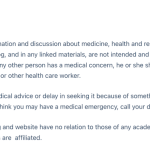Unlock Your Success With Expert Business Email Advice – Take Action Now!
Business Email Advice: Mastering the Art of Professional Communication
Introduction
Imagine this scenario: You have just received an important email from a potential client or a business partner, and you are eager to respond promptly and professionally. However, the fear of sounding unprofessional or making a mistake in your email lingers in the back of your mind. We have all been there, wondering if our email etiquette and communication skills are up to par. Fear not! In this article, I will share with you valuable business email advice that will help you master the art of professional communication, ensuring that your emails leave a lasting impression.
1 Picture Gallery: Unlock Your Success With Expert Business Email Advice – Take Action Now!

Body Paragraphs
What is Business Email Advice?

Image Source: calameoassets.com
Business email advice refers to the guidelines and best practices for writing professional emails. It encompasses various aspects such as email etiquette, format, tone, and content. Mastering the art of business email communication is crucial for establishing and maintaining professional relationships, as it reflects your professionalism, attention to detail, and respect for others’ time.
Who Should Follow Business Email Advice?
Business email advice is essential for professionals across various industries, including business owners, executives, employees, freelancers, and anyone who engages in professional communication through email. Whether you are sending an email to a client, colleague, or prospective employer, adhering to business email advice will help you communicate effectively and leave a positive impression.
When and Where to Apply Business Email Advice?
Business email advice should be applied whenever you are communicating professionally through email. Whether you are sending a job application, responding to a client’s inquiry, or simply exchanging information with colleagues, following these guidelines will ensure that your emails are clear, concise, and professional. Business email advice is applicable in all professional settings, including offices, remote work environments, and business meetings conducted via email.
Why is Business Email Advice Important?
Image Source: fbsbx.com
Business email advice is crucial for several reasons. Firstly, it helps you convey your message effectively, ensuring that your intentions are clear and understood by the recipient. Secondly, it assists you in maintaining a professional image and reputation. Your email communication reflects your professionalism, attention to detail, and respect for others’ time. Lastly, following business email advice establishes credibility and fosters positive relationships with clients, colleagues, and business partners.
How to Implement Business Email Advice?
Implementing business email advice involves several key elements. Firstly, ensure that your emails have a clear and concise subject line, enabling the recipient to understand the purpose of your email at a glance. Use a professional email address that includes your name or your business name, rather than personal or unprofessional email addresses. Craft your email with a professional tone and language, avoiding slang or informalities. Pay attention to grammar, spelling, and punctuation to maintain a high level of professionalism. Lastly, always proofread your email before sending it to avoid any errors.
FAQs about Business Email Advice
Q: What is the appropriate length of a business email?
A: Business emails should be concise, focusing on conveying your message efficiently. Ideally, aim for emails that are no longer than one to two paragraphs.
Q: Should I use greetings and sign-offs in business emails?
A: Yes, it is important to begin your email with a professional greeting, such as Dear Mr./Mrs. or Hello [Recipient’s Name]. Similarly, include a polite sign-off, such as Kind regards or Sincerely, followed by your name.
Q: How quickly should I respond to business emails?
A: It is best practice to respond to business emails within 24 hours, or sooner if the matter is urgent. Prompt responses demonstrate professionalism and a commitment to excellent communication.
Transition Paragraphs
Now that we have explored the what, who, when, where, why, and how of business email advice, let’s delve into some specific elements and considerations that can further enhance your professional communication skills.
Email Formatting and Structure
When it comes to formatting your business emails, simplicity is key. Use a professional font, such as Arial or Times New Roman, and maintain a font size between 10-12 points. Organize your email into paragraphs, ensuring that each paragraph focuses on a specific point. Consider using bullet points or numbered lists when presenting multiple ideas or action items. Additionally, using proper headings, subheadings, and paragraphs will make your email more visually appealing and easier to read.
Email Tone and Language
The tone and language of your email play a crucial role in conveying your message effectively. Maintain a respectful and professional tone throughout the email, avoiding sarcasm, unnecessary jargon, or offensive language. Use clear and concise sentences, keeping in mind that brevity is key in professional communication. Avoid using acronyms or abbreviations that might be unfamiliar to the recipient.
Responding to Business Emails
When responding to business emails, it is important to address all points raised by the sender. Be courteous and appreciative of the sender’s email, regardless of the nature of the content. If you are unable to fulfill a request or meet a deadline, communicate it politely and provide alternative solutions or suggestions. Always proofread your response before sending it to ensure accuracy and professionalism.
Email Etiquette
Email etiquette is a crucial aspect of professional communication. Some key email etiquette tips include:
1. Use a professional email signature that includes your full name, job title, contact information, and any relevant professional affiliations.
2. Ensure that your email is addressed to the correct recipient and that you have used the CC and BCC fields appropriately.
3. Avoid using excessive capitalization, as it can be perceived as shouting or unprofessional.
4. Use a descriptive subject line that accurately reflects the content of your email.
5. Avoid forwarding chain emails, jokes, or irrelevant content to professional contacts.
Conclusion
Mastering the art of professional communication through business email advice is a skill that can elevate your professional image and foster strong relationships with clients, colleagues, and business partners. By implementing the guidelines and best practices discussed in this article, you can ensure that your emails are clear, concise, and professional. Remember to always proofread your emails, maintain a respectful tone, and adhere to email etiquette. With these tools in your arsenal, you can navigate the world of business email communication with confidence and leave a lasting impression.
This post topic: Small Business


